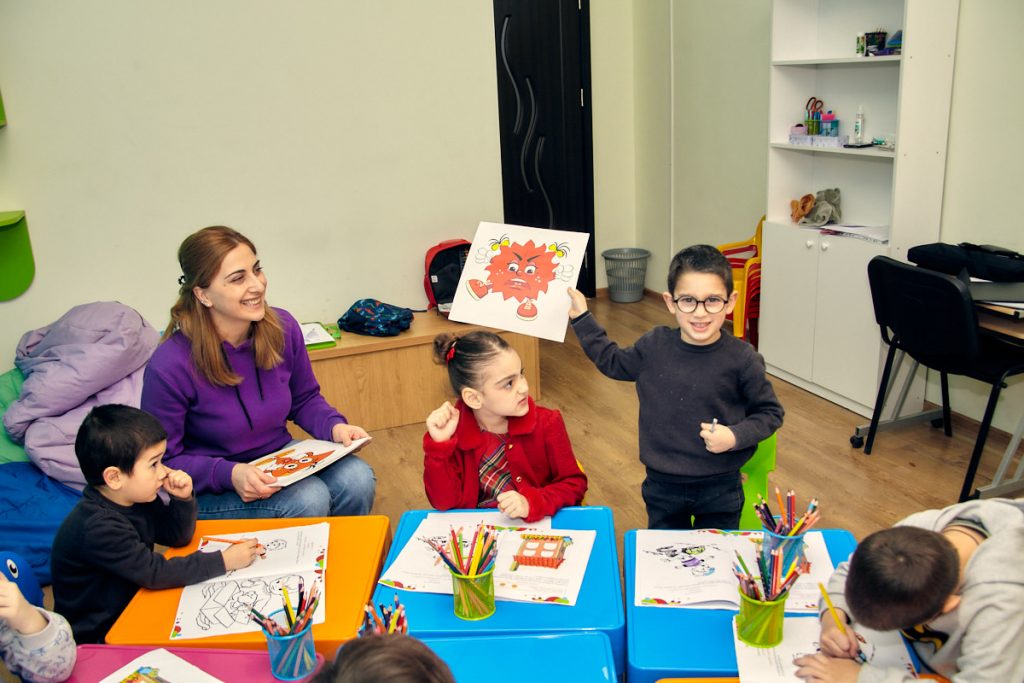Emotional Intelligence
What is emotional intelligence?
Emotional intelligence is an important skill that helps people understand exactly what they feel at specific moments and make the right decisions based on that in their personal and professional life.
Studying and understanding emotions contributes to the process of self-awareness and regulation. Self-awareness helps the child maintain adequate self-esteem and overall well-being.
People with high emotional intelligence are more empathetic and can understand and help manage not only their own emotions, but also those of others. Consequently, they have good social skills and are easily able to establish healthy and solid relationships.
Emotional intelligence helps a person: Coping with stress, effective communication, empathy for others, staying motivated and resolving conflicts.
These qualities play an important role in the path to career or personal success – helping children to achieve their goals with fewer obstacles.
The course is intended for children aged 4 to 15 years

Value
• Working day groups - 120 GEL
• Weekend groups - 140 GEL
The tuition fee will be calculated for 1 month. There is one 80-minute lesson per week. 4 lessons held in a month are considered a full academic month. If he has 5 lessons in a calendar month, the fee is not added.
Addresses
Saburtalo - Vazha Pshavela Street #85
Gldani - Gobronidze Street #1
Duration
Full course duration: 1.5 years
Discounts
-10% - two cousins
-20% - three or more cousins
Course Syllabus
The full course is divided into 3 stages.
I Stage – familiarization with basic emotions
II Stage – knowledge improvement through practical exercises
III Stage – consolidation of knowledge and application in everyday life
- I Stage
- Getting to know basic emotions
- Getting to know the forms of expression of emotions
- Determining the causes of emotions
- Developing a positive attitude towards oneself
- Developing adequate self-esteem
- Developing the ability of self-control
- Analyze the benefits of each emotion
- Development of associative thinking (seeing the connection between different objects, ideas)
- Correct formation of personal boundaries
- Development of self-expression skills
- II Stage
- Distinguish between conscious and unconscious behavior
- Learning breathing techniques
- Thinking and studying methods of managing emotions
- Improving peripheral thinking skills
- Showing the relationship between emotions and time perception
- Development of group work skills
- Development of self-esteem and social competence skills
- Development of social relations skills
- Development of ability to control emotions in social relations
- Training the ability to recognize sincere and insincere actions with the help of emotions
- Recognizing body language in conversation
- III Stage
- Gaining experience of social interaction in a group
- Developing the ability to self-reflect and express one’s own knowledge and personal qualities
- Analysis of the experience of error and fear
- Enhancing skills to deal with feelings of embarrassment and shyness
- Enhancing the experience of recognizing one’s own and others’ emotions
- Developing the ability to address politely
- Learning techniques of active listening and open questions
- Management of conflict situations
- Development of analysis and reflection skills
- Development and consolidation of the ability of non-verbal expression
- Analyze primary and secondary emotions
- Maintaining a balance in the development of leadership skills
- Developing the ability to analyze the feeling of love in oneself and in other people
